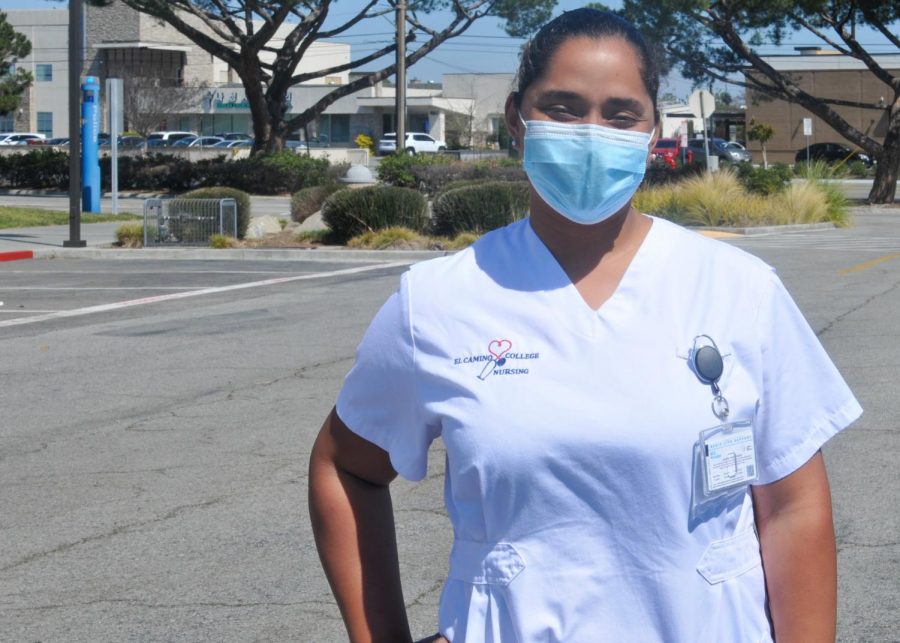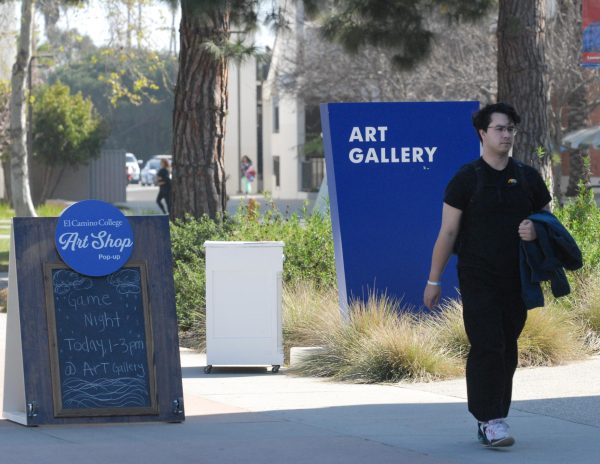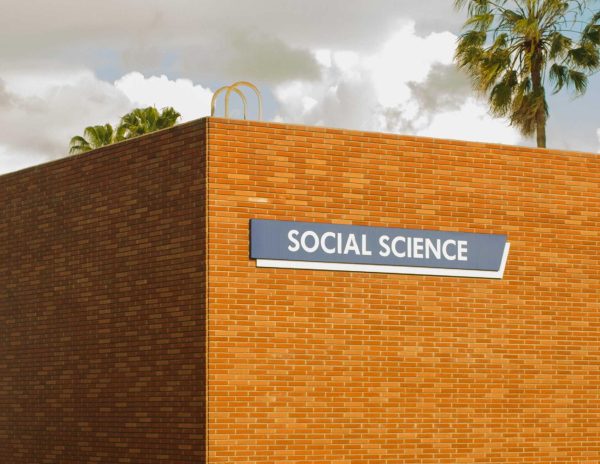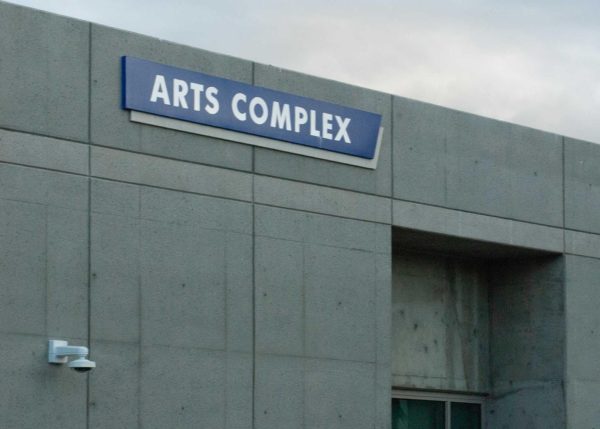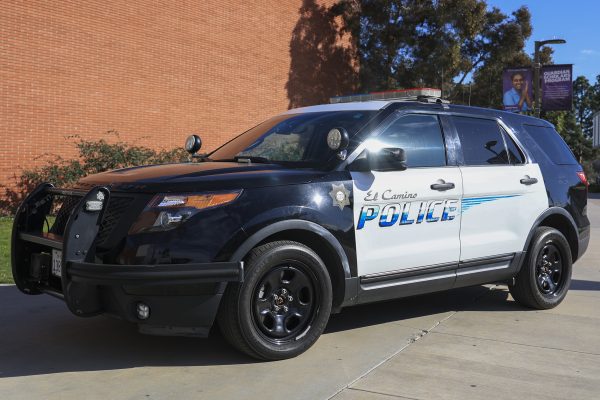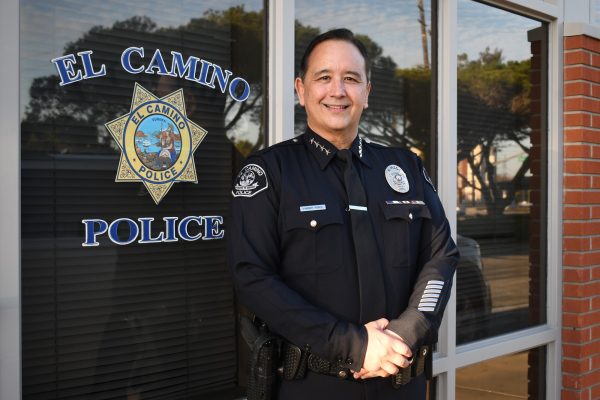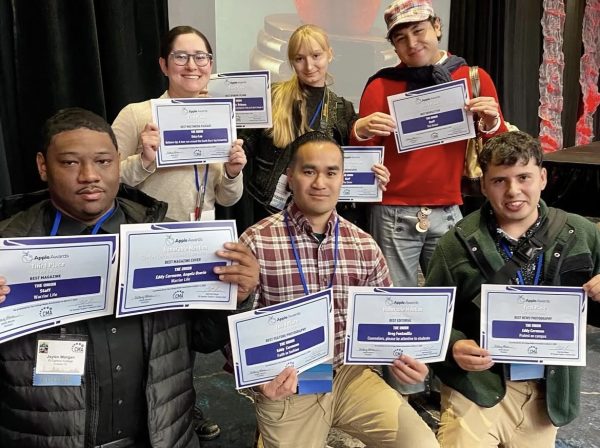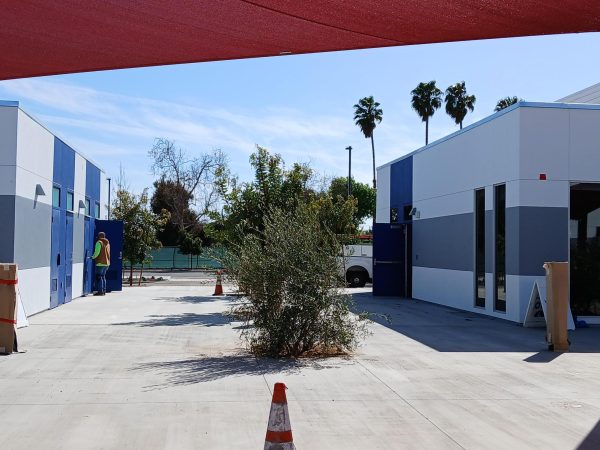Campus community discovers silver linings of pandemic
Lidia Tejeda, a 30-year-old El Camino College nursing major, poses for a picture right after leaving her in-person nursing class on March 18, 2021, in Torrance, Calif. Tejeda is one of the few ECC students that have been able to take classes on campus during the Covid-19 pandemic. Tejeda said that she “loved” the hybrid learning style and hoped that it is something that she would be able to continue after the pandemic. (Walter Jay Jr. / The Union)
As El Camino College officials work on a plan to safely reopen campus, at a date still to be determined, the campus community looks for silver linings in the year-long pandemic.
While Erica Brenes, Puente program coordinator, has concerns that students in multi-generational homes will face a difficult choice when going back to in-person learning, she’s thankful it’s something students don’t have to decide immediately.
“I hate the idea of a young student being forced to make a choice between in-person learning that they need, because of the way they learn, and the safety of their grandparents at home,” Brenes said.
Brenes, who has been working remotely, said there are a few things that have made her personal life easier.
“I love my house, and I’m here every day when the kids come home from daycare,” Brenes said. “My house has never been cleaner… and I don’t do my commute, which is great.”
Rocio Diaz, a student success counselor at ECC has also been working remotely during the pandemic and said she misses the connection and congeniality of her colleagues, but has concerns about returning to campus.
Social-distancing workspaces, ECC’s plan for indoor ventilation and the availability of personal protective equipment (PPE) are at the top of Diaz’s list of worries. She is happy to trade-off taking longer to be in-person if it means the increased safety of the campus community.
“One of my biggest [concerns] is, let’s not test something that’s gonna put people at risk,” Diaz said. “I think the safety and well-being of students and faculty is first.”
Lidia Tejeda, 30-year-old nursing major, has been taking some of her classes on campus this semester.
Tejeda has to go through several safety measures to be on campus; temperature checks when entering the classroom, twice-a-day self-checks for symptoms that have to be cataloged and submitted monthly, social distancing surveys and having to request in-person classroom time due to the lack of socially distant class space.
“If someone would be sick, and if that person tests positive, it hinders everyone in that same class,” Tejeda said. “With nursing, it’s very demanding, so [testing positive for COVID-19] would basically kick you out for the semester.”
But despite all the additional procedures and pressures, Tejeda has grown to appreciate the hybrid class model. She hopes that it’s something that is offered even when the pandemic is over.
“To be honest, I prefer the hybrid [model],” Tejeda said. “There are certain moments that I do enjoy coming here, coming to lecture and doing the skills hands-on.”
The reduced traffic, easy access to parking space and not having to be on campus every day has also given Tejeda extra time to spend with her daughter. A privilege she feels she wouldn’t have been afforded without the hybrid learning style that resulted from the pandemic.
Diaz said that seeing how the current hybrid model works for students like Tejeda will be crucial in determining procedures for the future. She hopes that it will be something which informs and guides ECC’s decision on how to create a safe and adaptive plan to return to being on campus.
“I really want to hear [current hybrid students’] perspectives, given that they’ve started this ahead of everyone else,” Diaz said. “My thing is always students first, so whatever works best for students.”
EDITOR’S NOTE: THIS STORY WAS UPDATED APRIL 8 TO ADD AN IMAGE.


